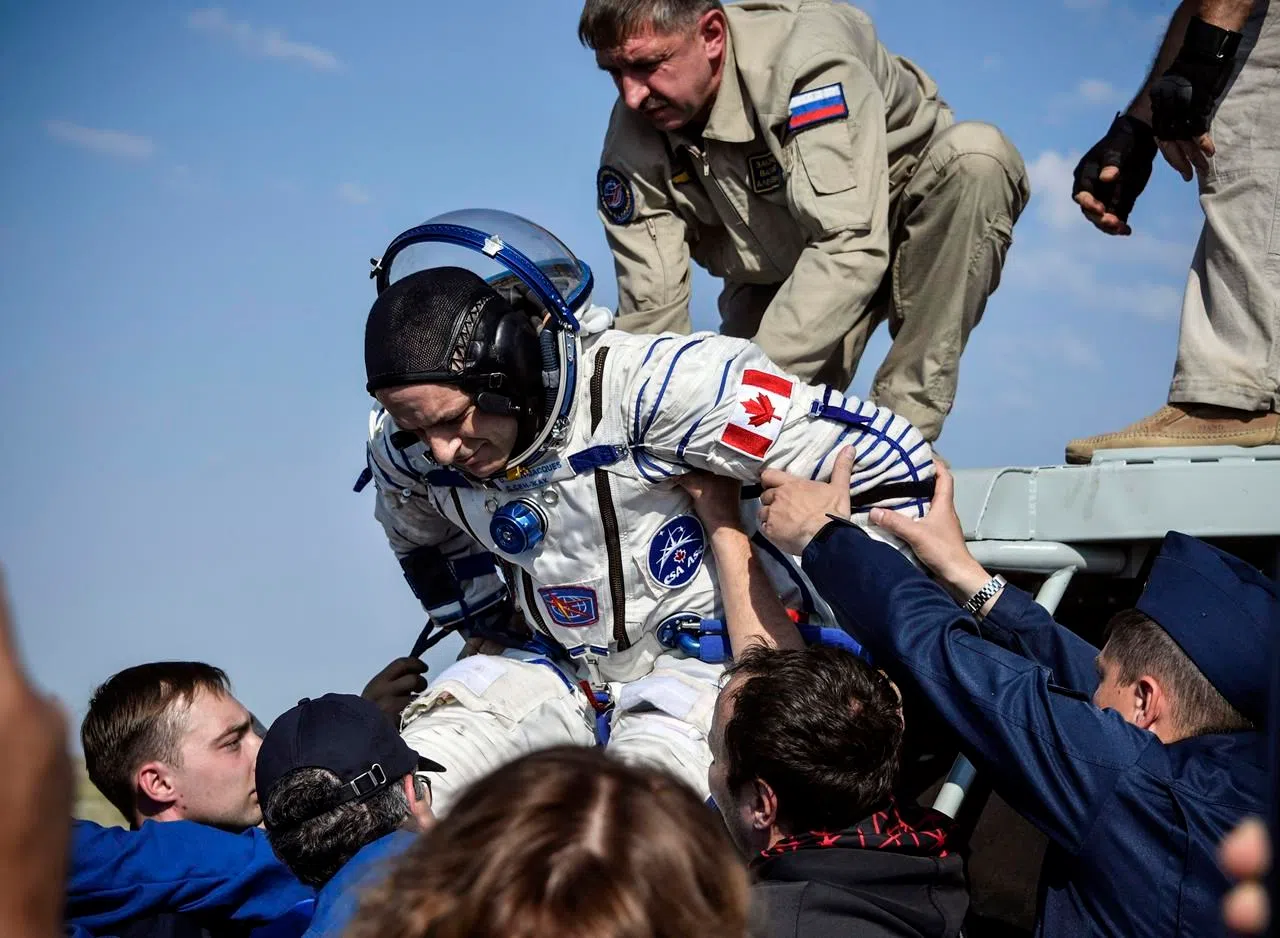
David Saint-Jacques doing well after space flight: Canadian Space Agency
MONTREAL — Canadian astronaut David Saint-Jacques is doing well as he continues his long journey home after a six-month stint aboard the International Space Station, the Canadian Space Agency said Tuesday.
The 49-year-old Quebec native boarded a NASA plane after landing in Kazakhstan late Monday and was expected to arrive in Houston Tuesday after a brief stopover in Scotland.
The agency said Saint-Jacques is in good health despite suffering the effects of a 400-kilometre drop to Earth.
“Despite experiencing typical post-flight symptoms like nausea, he is well,” agency spokeswoman Marie-Andre Malouin wrote in an email.
